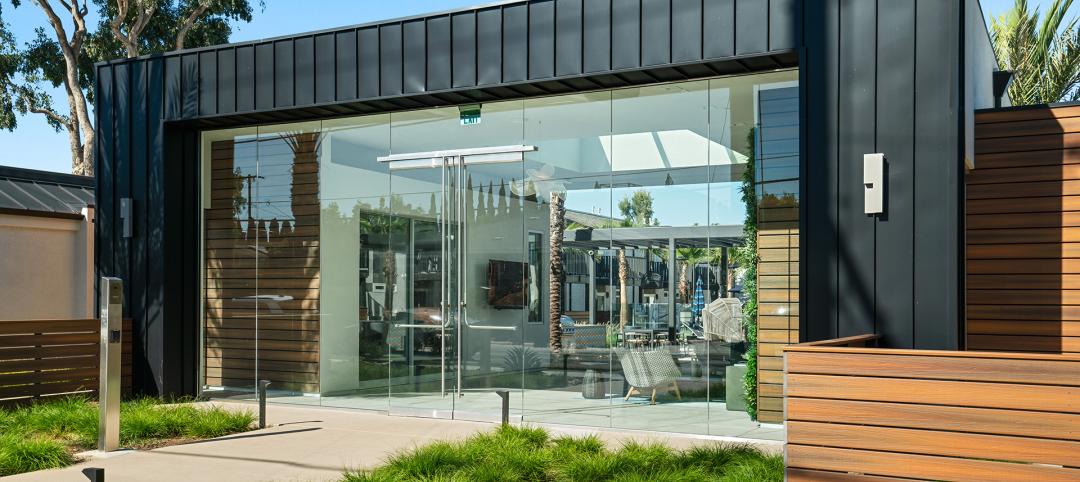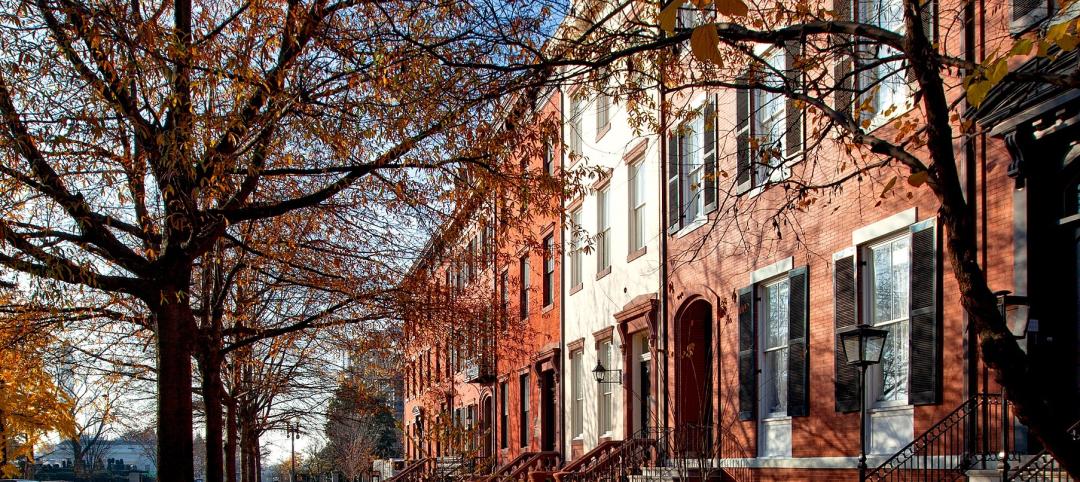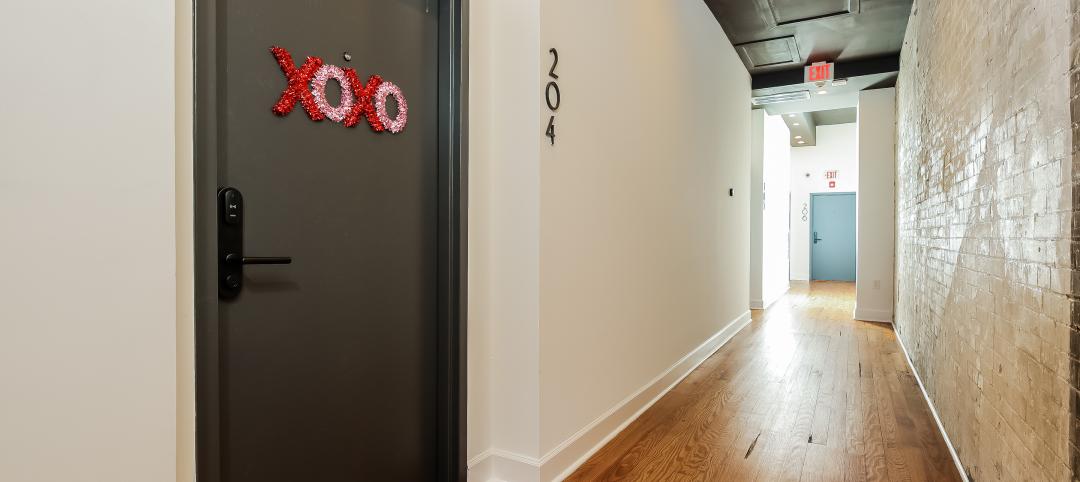Kaiser Permanente has entered into a partnership with Community Solutions to accelerate efforts to end chronic homelessness in 15 communities within the healthcare system’s national footprint.
Over the next three years, Kaiser Permanente will provide $3 million to Community Solutions’ Built for Zero initiative, which since 2015 has used real-time data and existing resources to help 10 communities house more than 65,227 veterans and another 38,583 chronically homeless Americans. The organization estimates that, on any given night, as many as 125,000 people are chronically homeless in America today.
A spokesperson for Community Solutions, Jake McGuire, tells BD+C that his organization’s purpose is to assist communities in pulling together homeless information into one database that would be updated monthly, as the first step toward devising testable strategies to address homelessness.
Those solutions will vary by community. But the goal is to place homeless individuals and families into permanent housing with appropriate support services and case management. McGuire says that it’s less about building new apartments than about unifying a community’s disparate efforts to reduce chronic homelessness.
Kaiser Permanente is one of several partners working with Community Solutions. Others include The Home Depot Foundation, JPMorgan Chase & Co., The Ballmer Group, and Tableau Foundation, which provides data analytics software.
Six of the 15 Kaiser Permanent communities participating in Built for Zero are in California: Sacramento and Sacramento County, Marin County, Richmond and Contra Costa County, Fresno and Madera County, Santa Cruz, Watsonville, and Santa Cruz County; Bakersfield and Kern County, and Riverside County. The other participating markets are Washington D.C., Baltimore, Montgomery County, Md., Arlington County, Va., Fairfax, Va., Denver, Atlanta, and Honolulu.
Rosanne Haggerty (center), president of Community Solutions, speaking at Austin's South by Southwest Conference, where she announced a partnership with Kaiser Permanente, whose Chief Community Health Officer Bechara Choucair is sitting to her right. Bobby Watts, CEO, National Health Care for the Homeless Council, is to Haggerty's left. Image: Community Solutions.
The news of the alliance between Kaiser and Community Solutions was made public today during a panel discussion at the South by Southwest Conference in Austin, Texas. The panelists were Bechara Choucair, M.D., Chief Community Health Officer for Kaiser Permanente; Bobby Watts, CEO of the National Health Care for the Homeless Council; Laurel Blatchford, president of Enterprise Community Partners; and Rosanne Haggerty, president of Community Solutions.
In January, Kaiser Permanente announced separately its commitment to house 500 chronically homeless people over the age of 50 in Oakland, Calif. Last year, Kaiser created its Thriving Communities Fund, a $200 million investment fund focused on addressing affordable housing and other factors that contribute to homelessness.
There are just under 553,000 people who, on a given night, are homeless in the U.S. Approximately 35% are them are unsheltered, according to the U.S. Department of Housing and Urban Development. About 36,000 of these homeless are unaccompanied youths under 25 years old. Half of all homeless people are located in five states: California, New York, Florida, Texas, and Washington
HUD estimates that while chronic homelessness—i.e., someone with a disability who has been homeless for at least a year—is considerably below what it was a decade ago, it has been inching up over the past two years. HUD estimates that nearly one quarter (24%) of all homeless people experience chronic patterns of homelessness, and nearly two-third of these chronically homeless are unsheltered.
The persistent shortage of affordable housing in the U.S. hasn’t helped matters. While the connection between affordability and homelessness may not be as palpable as it was during the last recession—when nearly four million homes were foreclosed each year—many people nevertheless are worried that affordable shelter, either owned or rented, seems out of reach for so many.
Nearly three out of four American households believe the nation is suffering from a housing affordability crisis, according to a representative survey of 2,203 adults that the National Association of Home Builders conducted last November. Seventy-three percent of those polled said that a lack of affordable housing was a problem in the U.S., 68% said this was an issue in their state, and 54% saw it as an issue in the neighborhood.
Related Stories
Sponsored | Multifamily Housing | Sep 25, 2023
Six3Tile helps The Sherbert Group bring an abandoned Power House back to life
Cladding and Facade Systems | Sep 22, 2023
5 building façade products for your next multifamily project
A building's façade acts as a first impression of the contents within. For the multifamily sector, they have the potential to draw in tenants on aesthetics alone.
Sponsored | Multifamily Housing | Sep 21, 2023
5 Helpful Resources for Designing & Building with Engineered Wood
From in-depth, technical publications with detailed illustrations and examples to in-person consultations with engineered wood specialists, APA offers a host of helpful resources for commercial designers and installers working with engineered wood.
MFPRO+ Blog | Sep 21, 2023
The benefits of strategic multifamily housing repositioning
With the rapid increase in new multifamily housing developments, owners of existing assets face increasing competition. As their assets age and the number of new developments increases seemingly day-by-day, developers will inevitably have to find a way to stay relevant.
Mixed-Use | Sep 20, 2023
Tampa Bay Rays, Hines finalize deal for a stadium-anchored multiuse district in St. Petersburg, Fla.
The Tampa Bay Rays Major League Baseball team announced that it has reached an agreement with St. Petersburg and Pinellas County on a $6.5 billion, 86-acre mixed-use development that will include a new 30,000-seat ballpark and an array of office, housing, hotel, retail, and restaurant space totaling 8 million sf.
Engineers | Sep 15, 2023
NIST investigation of Champlain Towers South collapse indicates no sinkhole
Investigators from the National Institute of Standards and Technology (NIST) say they have found no evidence of underground voids on the site of the Champlain Towers South collapse, according to a new NIST report. The team of investigators have studied the site’s subsurface conditions to determine if sinkholes or excessive settling of the pile foundations might have caused the collapse.
MFPRO+ Research | Sep 11, 2023
Conversions of multifamily dwellings to ‘mansions’ leading to dwindling affordable stock
Small multifamily homes have historically provided inexpensive housing for renters and buyers, but developers have converted many of them in recent decades into larger, single-family units. This has worsened the affordable housing crisis, say researchers.
Adaptive Reuse | Aug 31, 2023
New York City creates team to accelerate office-to-residential conversions
New York City has a new Office Conversion Accelerator Team that provides a single point of contact within city government to help speed adaptive reuse projects. Projects that create 50 or more housing units from office buildings are eligible for this new program.
Multifamily Housing | Aug 24, 2023
A multifamily design for multigenerational living
KTGY’s Family Flat concept showcases the benefits of multigenerational living through a multifamily design lens.

















